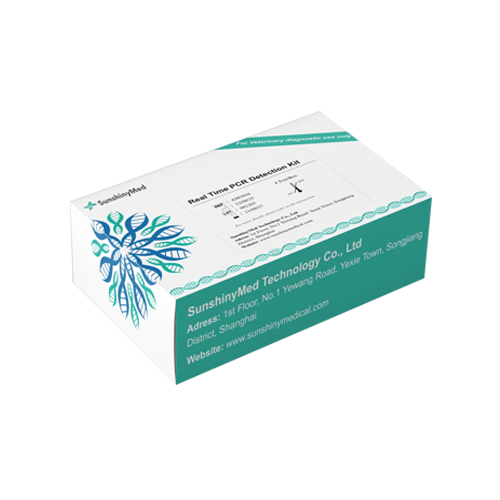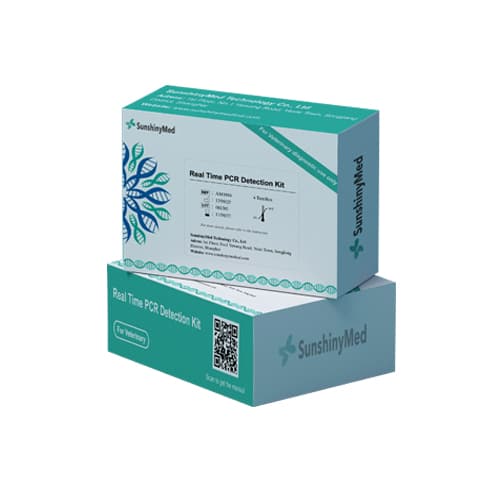


Brucella melitensis (B. melitensis) Nucleic Acid Detection Kit
Brucellosis is a chronic zoonotic infectious disease, which is commonly seen in cattle, sheep, pigs and other domestic animals. lt is generally inapparent and can be transmitted to humans and other domestic animals. lt mainly invages the reproductive system, resulting in abortion of pregnant female animals, orchitis and epididymitis of male animals
Brucella can be classified into 6 types, including Brucella melitensis, bovis, swine, dog, forest mouse and ovine testis. The first four types of Brucella can cause zoonotic systemic infectious diseases.
The main source of infection of brucellosis is diseased animals, which are mainly transmitted through the reproductive tract secretions of pregnant animals and aborted fetuses, and can be infected through damaged skin, mucosa, respiratory tract, digestive tract and other routes. Almost all human cases of brucellosis are caused by brucellosis positive animals, and humans have repeated attacks after infection. Human-to-human
transmission is extremely rare.
For cattle and sheep and other livestock, there is no specific drug for brucellosis, and prevention is the main approach. Once found need to cull, destroy, harmless treatment. lt is necessary to improve the awareness of
jarmers on the harm of brucellosis and strengthen the awareness of prevention. Therefore, the OlE has listed it as one of the notifiable zoonoses. Therefore, rapid and accurate diagnosis of brucellosis is very important. The
SunshinyMed's Brucella Nucleic Acid Detection Kit is helpful for the diagnosis and public health management of brucellosis.
The SunshinyMed Brucella Nucleic Acid Detection Kit is intended for the qualitative detection of Brucella DNA using the Real-time Polymerase Chain Reaction (Real-time PCR) method. The kit can be used to detect Brucella DNA in Blood specimens, providing a reliable basis for disease diagnosis.
Product Parameters
| Production Name | AmpliSunTM Brucella melitensis (B. melitensis) Nucleic Acid Detection Kit |
| Usage | Veterinary Diagnostics |
| Detection Method | Real-Time PCR |
| Specimen Type | EDTA anticoagulated blood |
| Storage Temperature | 2-30°C |
| Result Time | 45 Minutes |
| Packaging Specification | Individually sealed, 4 tests in total. |
| Format | Lyophilized reagent |
| Shelf Life | Up to Expiration Date Indicated on Package |
| Sensitivity | 500 copies/mL |
| Precision | ≤5% |
How to use?
Open the PCR tube and pipette 20 μL of extracted nucleic acid from the sample well of the nucleic acid extraction kit into the PCR tube. Close the cap tightly.
Mix the added liquid thoroughly with the solid in the PCR tube (vortex mixer is recommended) until no solid is visible (approximately 10 s). Then, briefly centrifuge for 5 s using a mini centrifuge to ensure all liquid is at the bottom of the PCR tube and no bubbles remain. Finally, place the tube into the PCR instrument for detection.
Materials provided
16 sets of PCR amplification freeze-dried reagents
16 sets of nucleic acid extraction reagents
16 sampling swabs
16 vials of sample preservation solution


